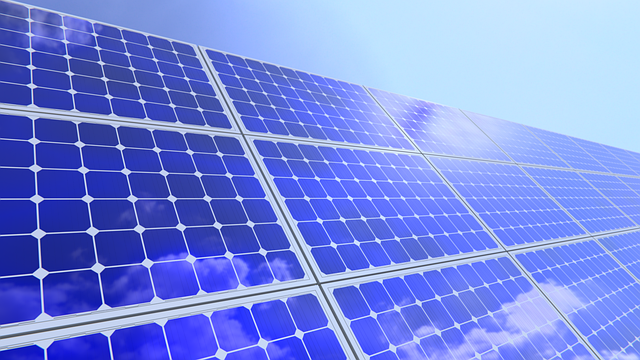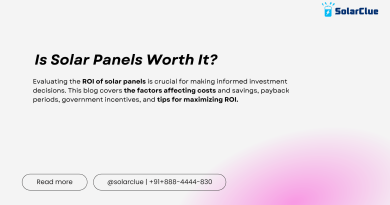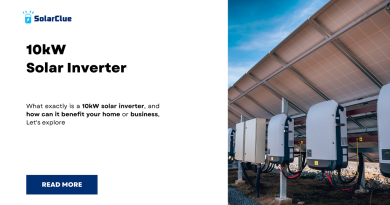Unlocking Perpetual Power: Off-Grid Solar Solutions for Day and Night
Off grid solar systems are a popular choice for those seeking energy independence and a sustainable lifestyle. With advancements in technology, these systems have become more efficient and affordable. However, one common question that arises is whether these systems can work 24 hours every day. In this blog, we will delve into the intricacies of off grid solar systems and explore their capability to operate around the clock.
Table of Contents
The Basics of Off Grid Solar Systems
Off grid solar systems are designed to function independently from the main power grid. They consist of photovoltaic (PV) panels, a charge controller, batteries, and an inverter. The PV panels capture sunlight and convert it into direct current (DC) electricity. This electricity is then stored in the batteries via the charge controller. Finally, the inverter converts the stored DC electricity into alternating current (AC) electricity, which can be used to power household appliances.
Understanding Electricity Storage and Consumption
One of the challenges faced by off grid solar systems is the storage and consumption of electricity when there is little or no sunlight available. The system relies on the batteries to store excess electricity generated during sunny periods, which can be used during cloudy days or at night. However, the capacity of the batteries and the amount of electricity stored determine how long the system can operate without sunlight.
Battery Capacity and Energy Demand
The capacity of the batteries plays a crucial role in determining the continuous operation of off grid solar systems. To ensure uninterrupted power supply, the batteries must have sufficient capacity to store excess electricity generated during sunny periods. Additionally, understanding your energy demand is important in determining the size and number of batteries required. If your energy demand exceeds the storage capacity of the batteries, the system may not be able to operate 24 hours every day.
The Impact of Weather and Seasonality
Weather conditions, such as cloudy days or heavy rain, can significantly affect the performance of off grid solar systems. During periods of low sunlight, the PV panels may not be able to generate enough electricity to meet the demand. This emphasizes the importance of considering climatic variations when planning an off grid solar system. Additionally, seasonality plays a role, as shorter days and longer nights in winter reduce the availability of sunlight, which can decrease the sysem’s output.
Efficiency of the Components
The efficiency of the components used in off grid solar systems can also impact their ability to operate continuously. PV panels with higher efficiency can generate more electricity even in low-light conditions. Similarly, advanced charge controllers and inverters can efficiently regulate and convert electricity, maximizing the overall performance of the system. Investing in high-quality, efficient components can improve the system’s ability to operate 24 hours every day.
Implementing Backup Systems
To ensure continuous operation, some off grid solar systems are equipped with backup generators or wind turbines. These backup systems provide an alternative power source during extended periods of low sunlight. When the batteries are depleted, the backup system automatically kicks in to power the house until the solar panels can generate sufficient electricity again. This backup system acts as a safety net, guaranteeing electricity even during unfavorable conditions.
Conclusion
In conclusion, while off grid solar systems have the potential to operate 24 hours every day, their continuous operation depends on various factors. The capacity of the batteries, the efficiency of the components, and the impact of weather and seasonality are all important considerations. By carefully assessing your energy demand, investing in high-quality components, and implementing backup systems, off grid solar systems can effectively provide electricity around the clock. Off grid solar systems present a sustainable and reliable solution for those seeking energy independence.
Experience unstoppable energy with SolarClue®! Explore our off-grid solar solutions for continuous power day and night. Embrace the future of sustainable, uninterrupted living.
Frequently Asked Questions
Yes, with proper design and storage solutions, off-grid solar systems can operate continuously.
Key components include solar panels, batteries, charge controllers, and inverters for efficient energy storage and management.
Stored energy in batteries is utilized during nighttime to ensure a constant power supply.
Yes, SolarClue® offers off-grid solutions tailored for uninterrupted power, ensuring a seamless experience.
Properly designed systems can withstand varying weather conditions, ensuring reliability day and night.
Routine checks on system components and battery maintenance are essential for optimal 24/7 performance.
Many off-grid systems are modular, allowing easy expansion with additional solar panels or batteries to meet growing energy demands.
Yes, backup generators can be added to provide additional power during extended periods of low sunlight.
In some regions, incentives, rebates, or tax credits may be available to encourage the adoption of continuous off-grid solar solutions.
SolarClue® incorporates advanced technology and quality components to guarantee the reliability and continuous operation of its off-grid solar solutions.




